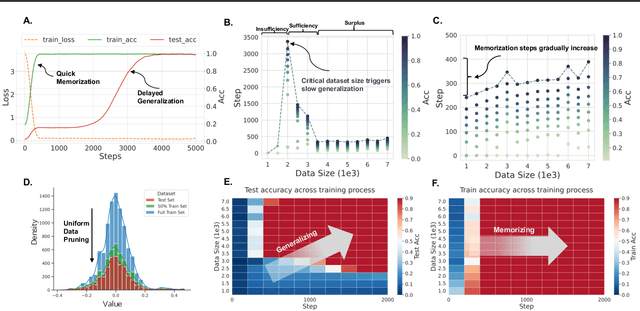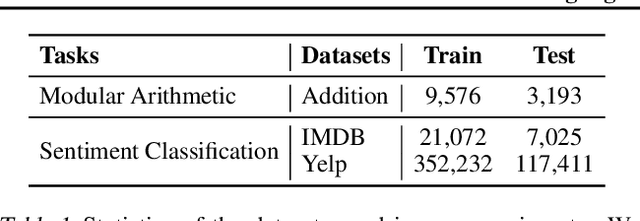Critical Data Size of Language Models from a Grokking Perspective
Paper and Code
Feb 06, 2024



We explore the critical data size in language models, a threshold that marks a fundamental shift from quick memorization to slow generalization. We formalize the phase transition under the grokking configuration into the Data Efficiency Hypothesis and identify data insufficiency, sufficiency, and surplus regimes in language models training dynamics. We develop a grokking configuration to reproduce grokking on simplistic language models stably by rescaling initialization and weight decay. We show that generalization occurs only when language models reach a critical size. We analyze grokking across sample-wise and model-wise, verifying the proposed data efficiency hypothesis. Our experiments reveal smoother phase transitions occurring at the critical dataset size for language datasets. As the model size increases, this critical point also becomes larger, indicating that larger models require more data. Our results deepen the understanding of language model training, offering a novel perspective on the role of data in the learning mechanism of language models.
 Add to Chrome
Add to Chrome Add to Firefox
Add to Firefox Add to Edge
Add to Edge